Division Worksheets for Ages 3-7
7 filtered results
-
From - To
Discover engaging and educational division worksheets designed specifically for children ages 3 to 7. Our collection supports young learners as they embark on their mathematical journey, introduced to the fundamentals of division in a fun and accessible way. Each worksheet features colorful illustrations and age-appropriate exercises that promote both cognitive development and number recognition. With varying levels of difficulty, these resources cater to every child's learning pace. Ideal for use at home or in the classroom, our division worksheets foster essential math skills while keeping learning enjoyable. Start your child’s path to math mastery with our expertly crafted materials today!
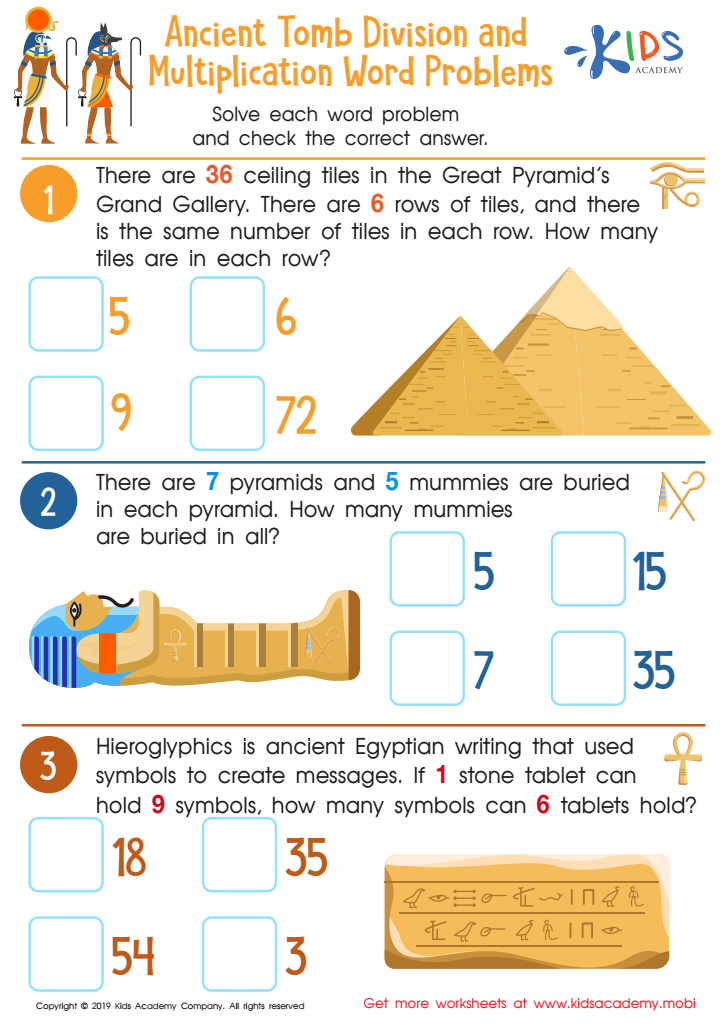

Ancient Tomb Division and Multiplication Word Problems Worksheet
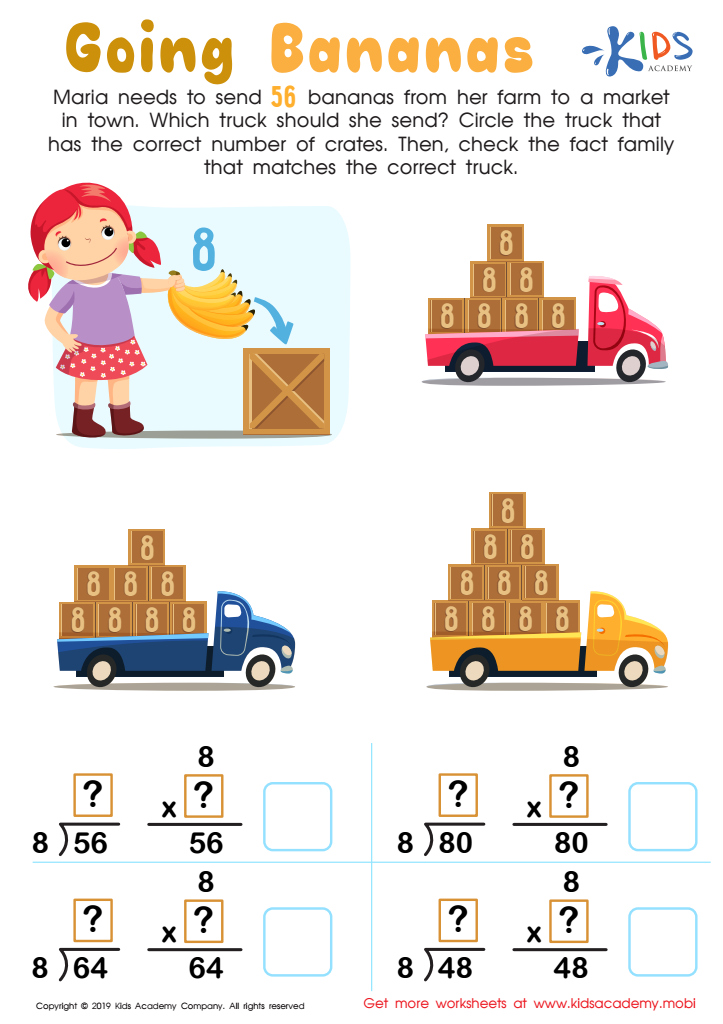

Going Bananas Worksheet


Pollinator Positions Worksheet
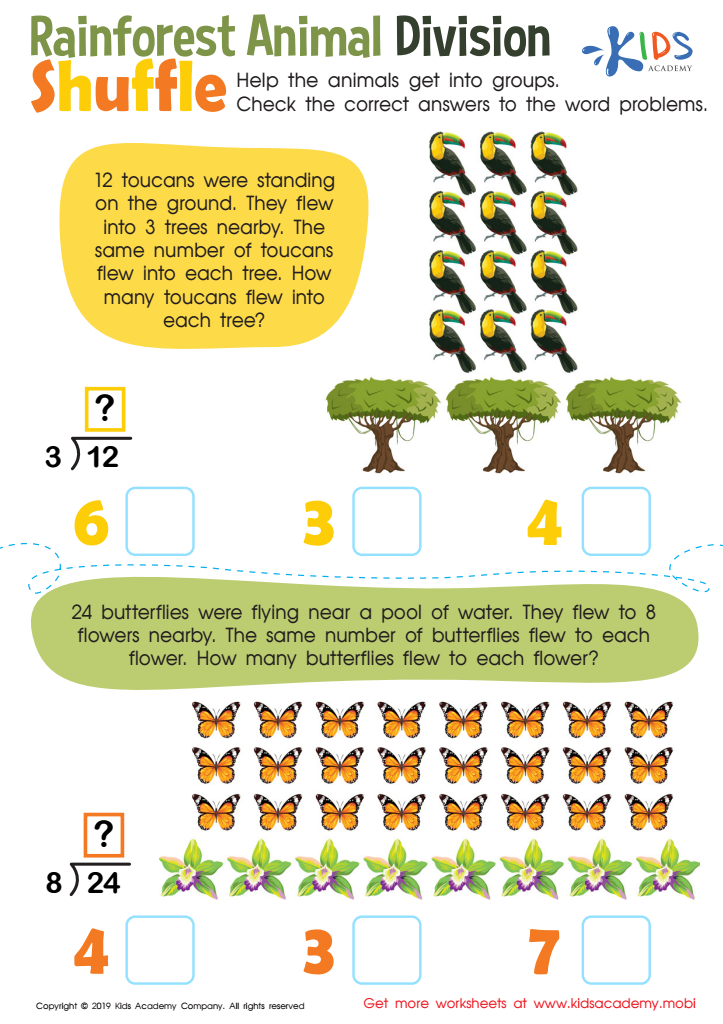

Rainforest Animal Division Worksheet
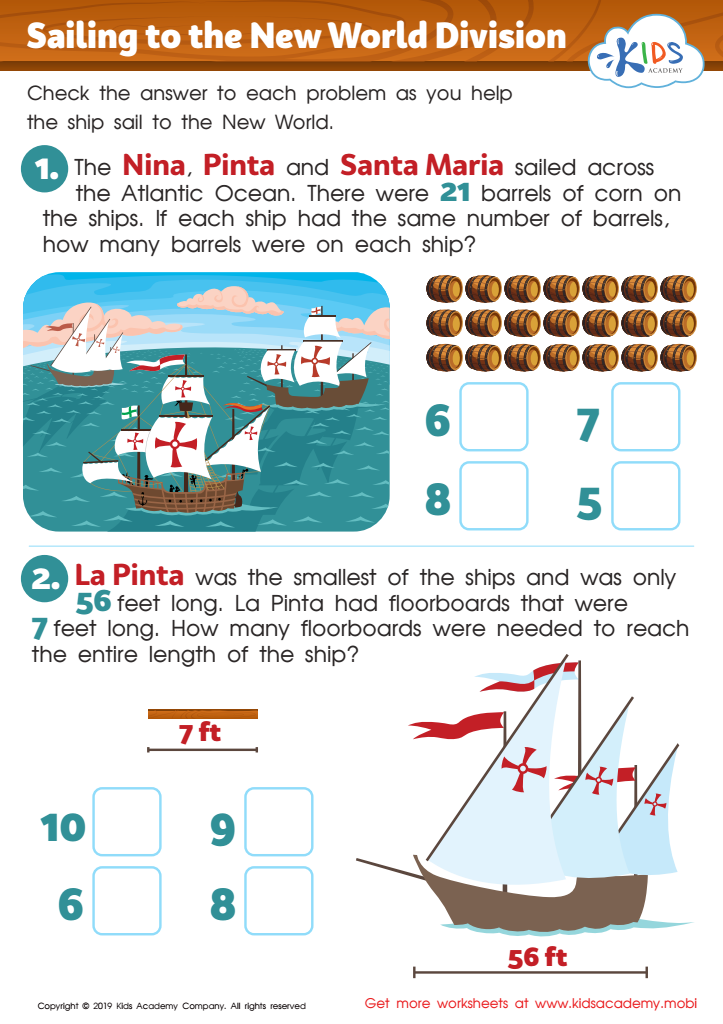

Sailing to the New World Division Worksheet
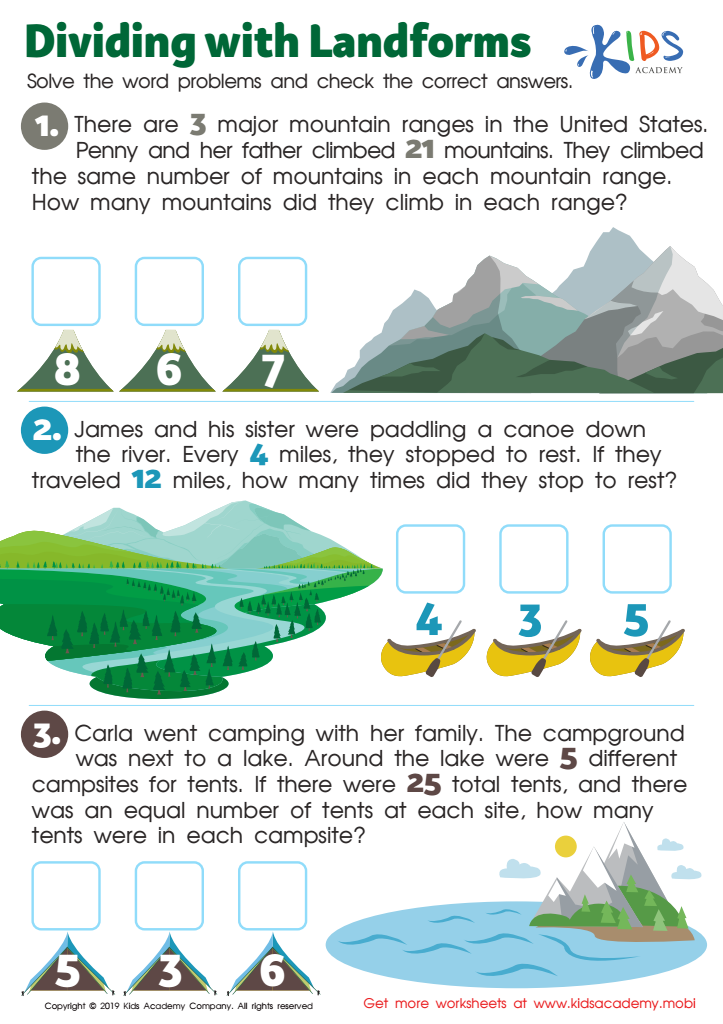

Dividing with Landforms
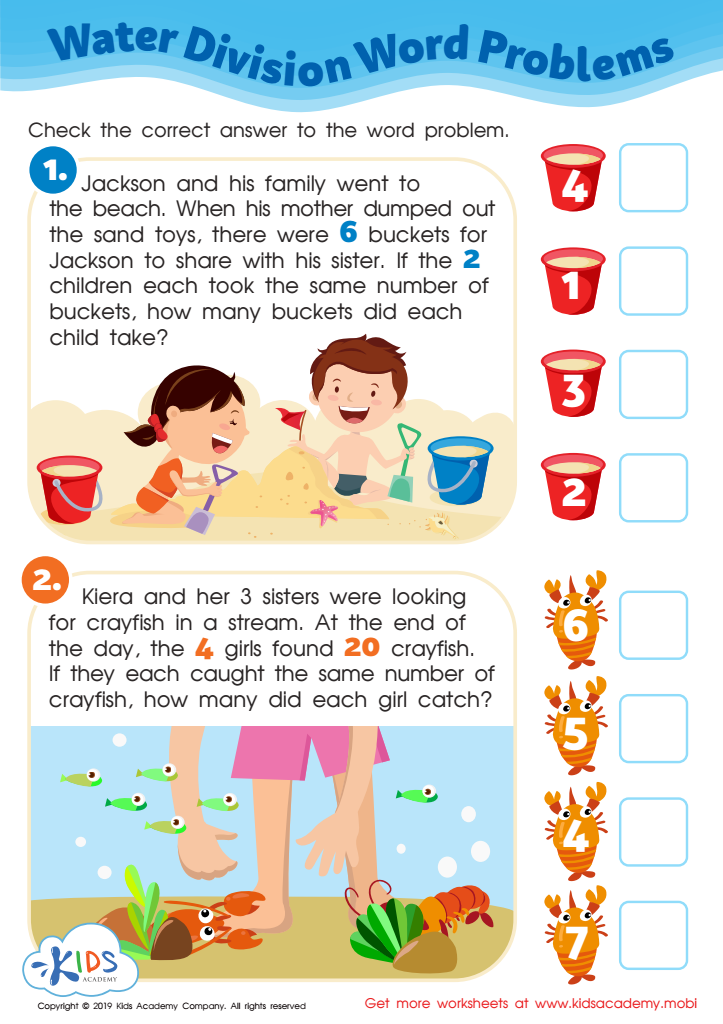

Water Division Word Problems Worksheet
Division is a fundamental mathematical concept that is crucial for developing critical thinking and problem-solving skills in young children, ages 3-7. Understanding division lays the groundwork for future math learning and helps children grasp essential number concepts, improving their overall numeracy. Parents and teachers should care about introducing division at this early age because it promotes a sense of fairness and sharing, vital social skills that children will utilize throughout their lives.
At this stage, children learn best through hands-on activities; manipulating objects can provide tangible experiences with division—dividing snacks among friends, sharing toys, or grouping items. Such practical engagement not only reinforces mathematical concepts but also connects division with everyday scenarios, making it more relatable and enjoyable.
Moreover, fostering a positive attitude towards division can build confidence and a love for math, reducing the mathematical anxiety often encountered later on. By introducing division early on, adults can nurture a child's readiness to tackle more complex mathematical operations, paving the way for academic success. This foundational understanding encourages curiosity and exploration, two key components in the cognitive and emotional development of children. Supporting this learning is critical, as it shapes their future approaches to not only math but challenges in general.

 Assign to My Students
Assign to My Students




















